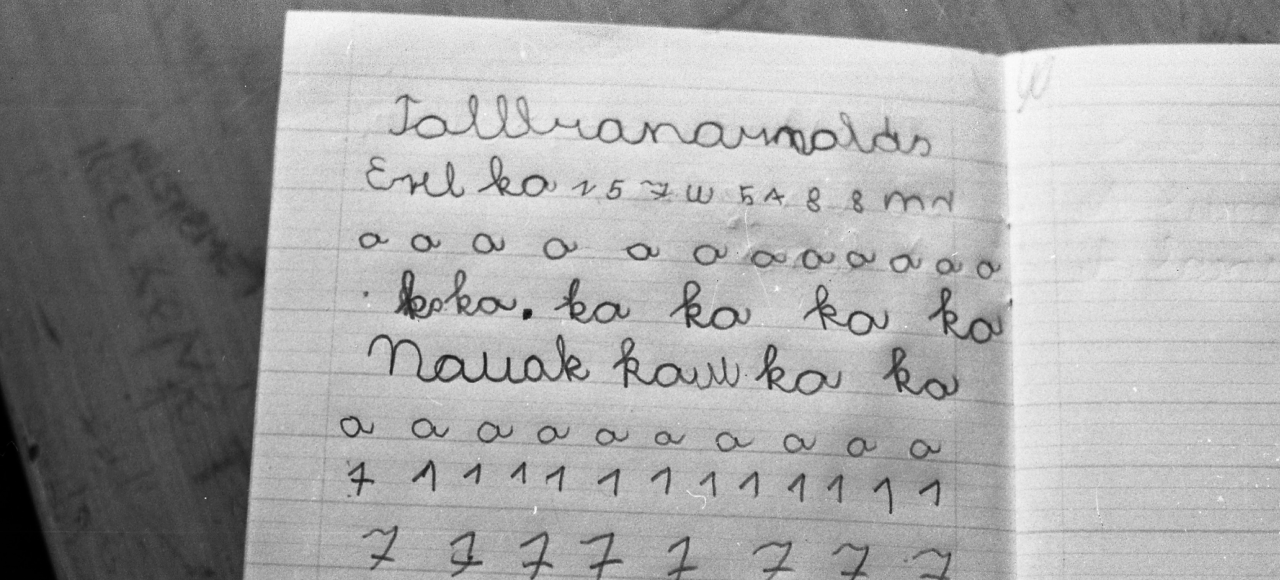
Central to Wittgenstein’s work was the nature of language and its role in the process of philosophising. He played a leading role in the ‘linguistic turn’ of modern philosophy, away from ideas and toward sentences in contexts. But his iconoclasm and deep distrust of any theory makes it misleading to classify him as a ‘philosopher of language’.
The brilliant, gnomic, and influential Tractatus Logico Philosophicus (1922) was the only book Wittgenstein published in his lifetime (1889-1951). This book offered an elaboration of its prefatory dictum, “What can be said at all can be said clearly; and whereof one cannot speak thereof one must be silent.” Many philosophers have argued that Wittgenstein believed that the truths which one could not speak – those supposedly found in ethics, religion, and philosophy itself, for example – could still be ‘shown’. A new alternative interpretation, associated especially with Cora Diamond and James Conant, is that Wittgenstein meant the dictum quoted above quite austerely and resolutely – that there was simply nothing to be said about what cannot be said. On this interpretation, Wittgenstein was quite in earnest when he wrote that the Tractatus itself was nonsense. The illusions of sense that it produced would be thrown away by one who, in reading it, understood his point in writing it.
After completing the Tractatus, Wittgenstein was silent on the subject of philosophy for some years, before returning to it publicly at the close of the 1920s with a renewed interest and some strikingly new formulations. In contrast to the crystalline simplicity of the Tractatus’s depiction of an ideal language, Wittgenstein’s later thought was expressed as a motley of considerations about the motley that language actually is. In contrast to the early focus on the essential form of logic and language, the later philosophy chiefly works by pointing out differences within and between real or imagined ‘language games’. The Tractatus gave the appearance of being a magisterial theory of logical form. Philosophical Investigations, the masterpiece of his later period, was fashioned rather after a dialogue with interlocutors or students.
Wittgenstein held throughout his life that clarity of thought and expression were hard to obtain because we fail to notice that we are always doing things with language. Uses of language have to be contextualised within living practice if they are to be understood, and there is all the difference in the world between the contexts of significant use of sentences which appear extremely similar – for example, consider “Swifts fly very fast”, “How time flies!”, and “The boat flew down the rapids”. He summed this up thus: “Philosophy is a battle against the bewitchment of our intelligence by means of language”. As it stands, this proposition is perhaps ambiguous: does it mean that it is language itself that befuddles our intelligence; or does it mean that we can combat philosophical confusions through particular clarificatory uses of language? Arguably, both. Wittgenstein thought that it was indeed only through investigation of what it made sense to say when, and of the sources of the compulsion to misunderstand, that philosophers could begin to put an end to conceptual confusions and pacify perturbed reflective minds. He also thought that it was precisely conceptual (i.e. linguistic) confusions – such as that that might be engendered by the failure to distinguish different uses of ‘fly’ – which led to philosophical perturbation in the first place. In this way, language (and our relation to it) is both the cure and the disease. Finding methods of ‘cure’ was far more important for Wittgenstein than arriving at dogmatic philosophical theses. Indeed, the very quest for and defence of theses was for Wittgenstein a symptom of philosophical confusion, because he held that only in scientific and other empirical disciplines could meaningful assertions about ‘how things are’ be made. This methodological precept, together with his disinterest in giving arguments, has contributed to his being hard to absorb within any professional thought community, including the discipline of philosophy.
Thus his philosophical ‘position’ might be described as evanescent. Wittgenstein hoped to get us to see how most philosophical questions – and the positions which we take up in response to those questions – are based in an unsatisfactory relationship between us and our words, a kind of linguistic confusion in which we want to say things that don’t make any sense.
In fact, the challenge which Wittgenstein makes to philosophy today can perhaps best be put precisely thus: try to philosophise, to think, without putting forward any ‘position’ at all.
Suggested reading
Tractatus Logico Philosophicus, Ludwig Wittgenstein (Routledge)
Philosophical Investigations, Ludwig Wittgenstein (Blackwell)
RUPERT READ IS AN ACADEMIC AND A GREEN PARTY POLITICIAN IN ENGLAND. HE IS CHAIR OF THE GREEN HOUSE THINKTANK, EAST OF ENGLAND GREEN PARTY CO-ORDINATOR AND A READER IN PHILOSOPHY AT THE UNIVERSITY OF EAST ANGLIA.

